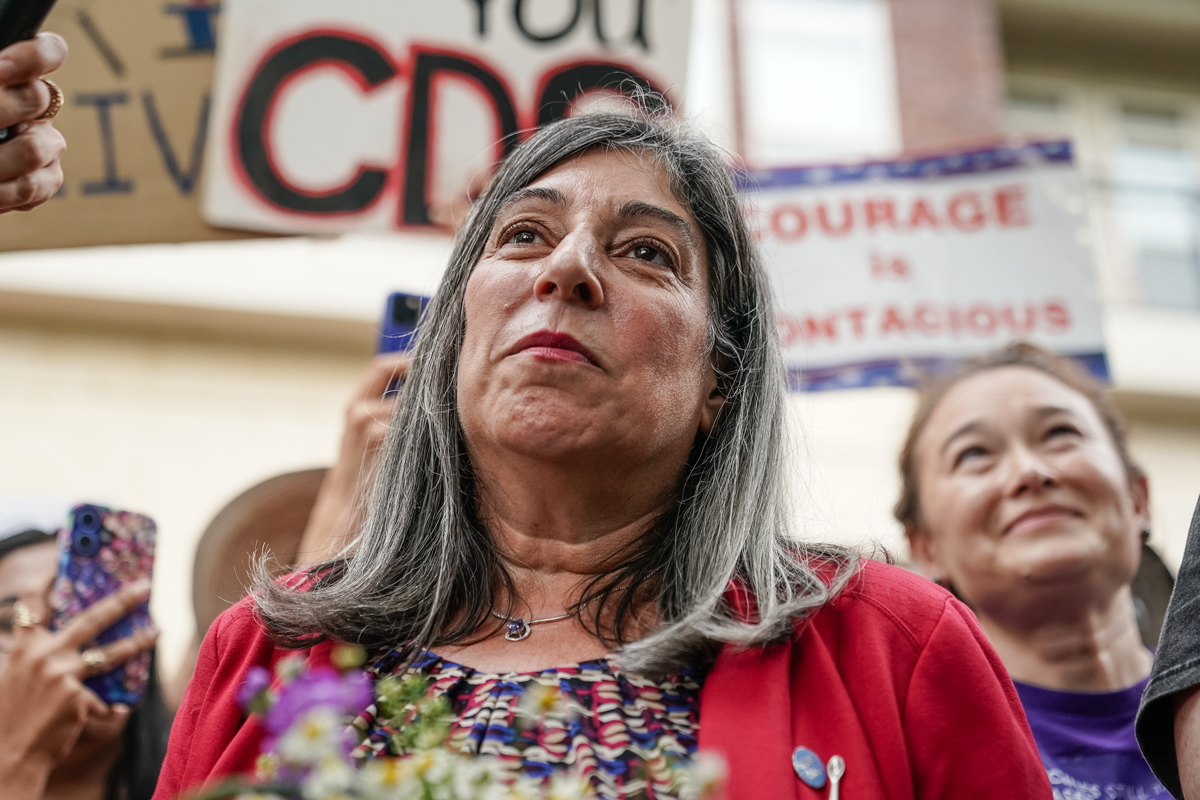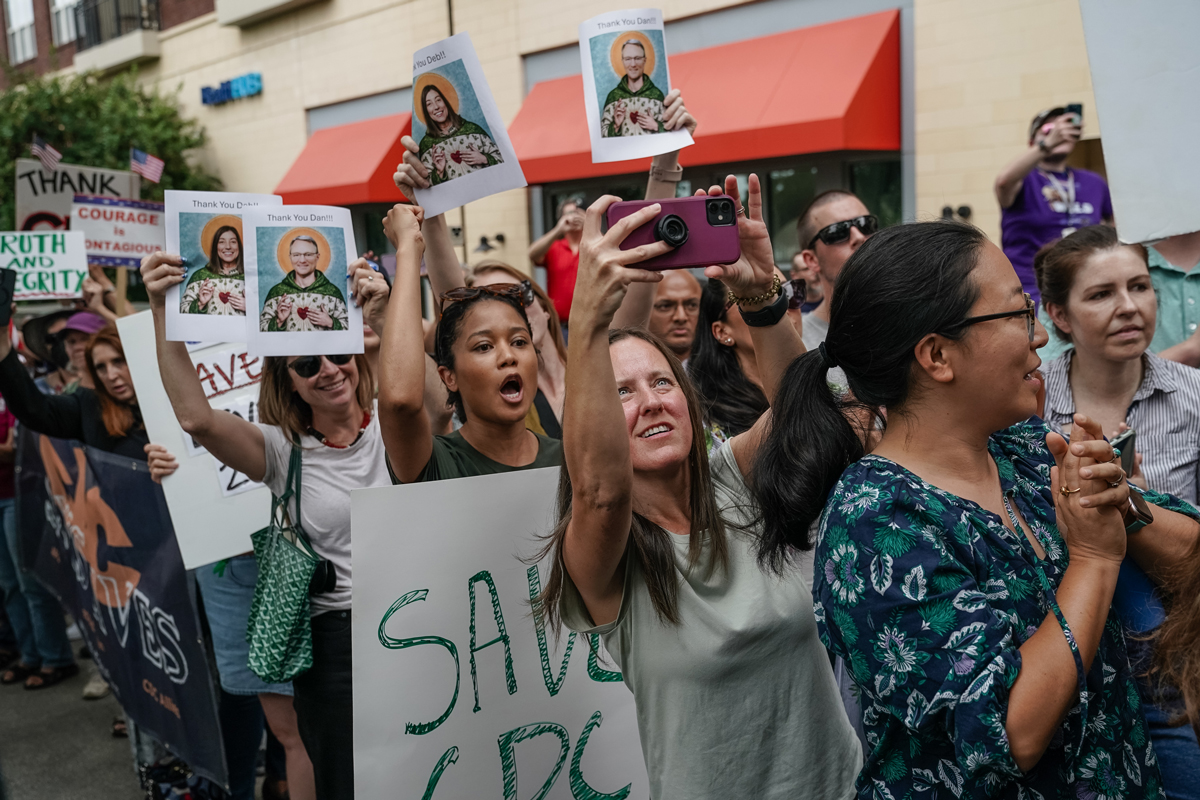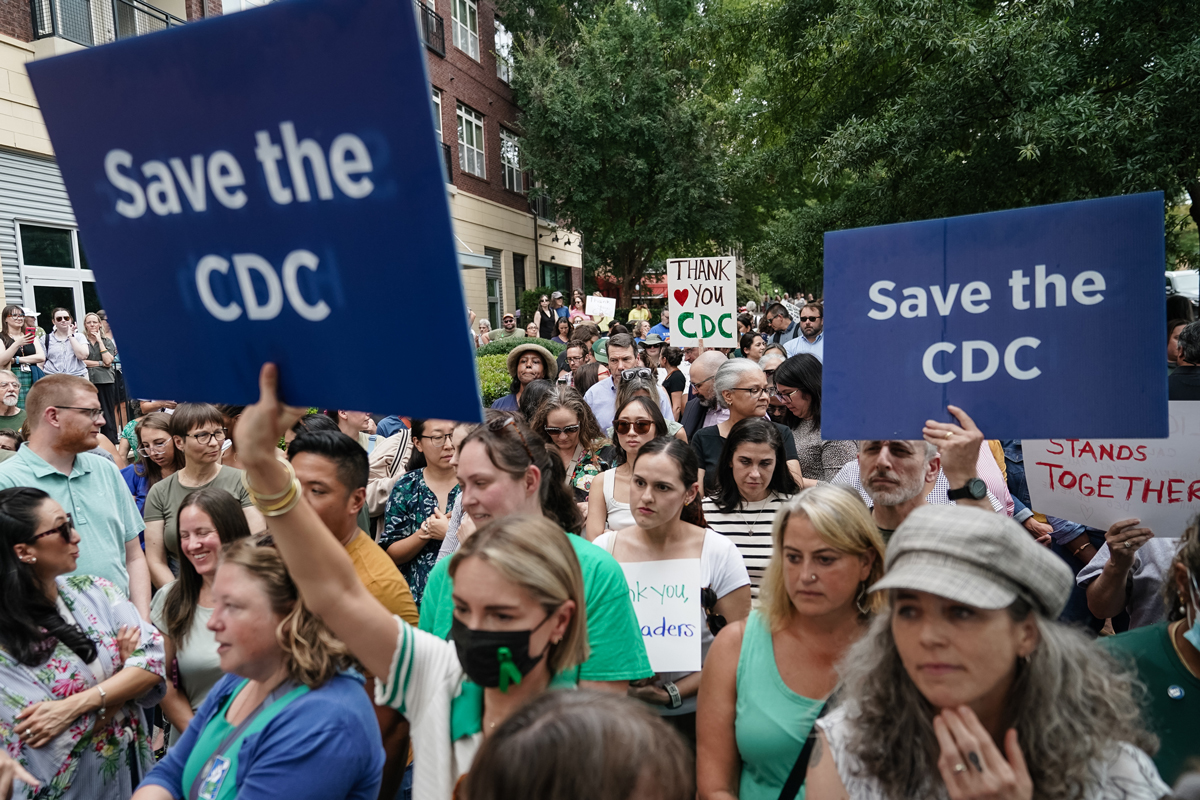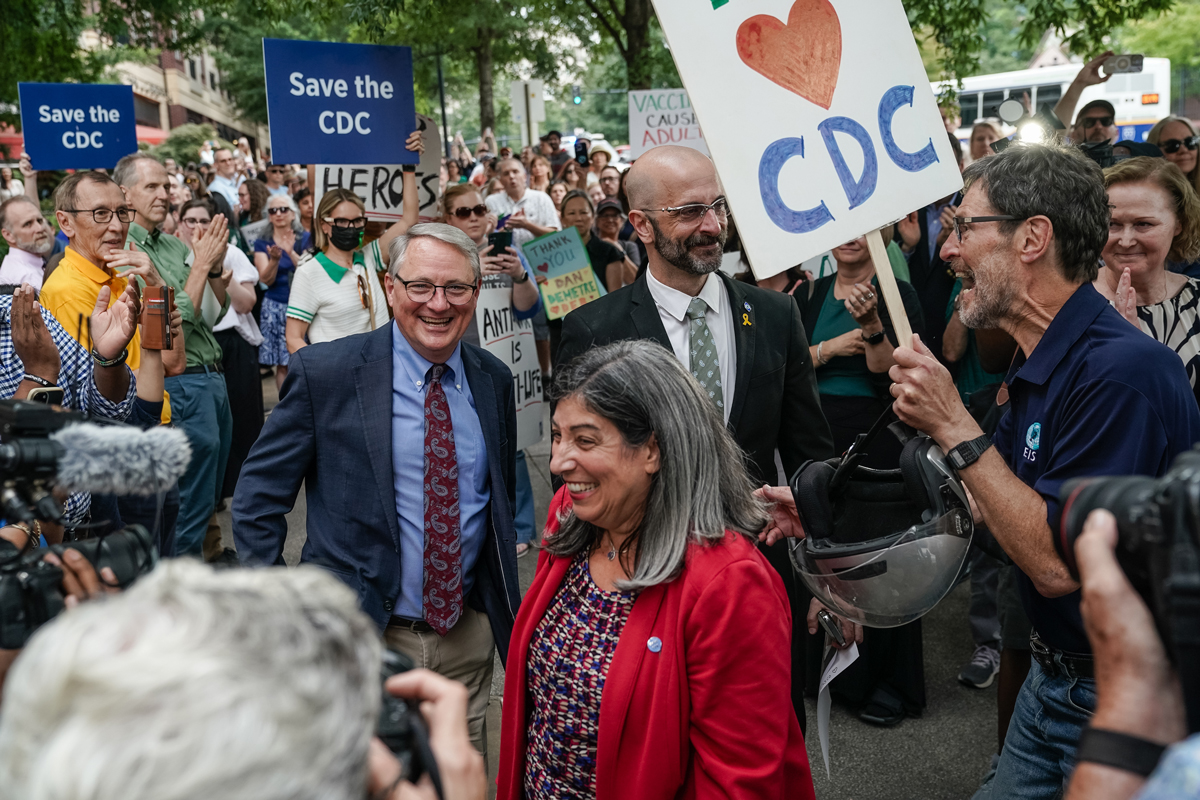
Photograph by Elijah Nouvelage/Getty Images
At first, the crowd that gathered Thursday afternoon across the street from the sprawling Clifton Road campus of the Centers for Disease Control and Prevention had the feel of a reunion. Retirees hugged former colleagues, fired workers returned, even some current employees melded in among them—although the announcement on a loud speaker warning “If you’re an employee and have your badge on, please take it off!” made it crystal clear that for all the conviviality, this event had more serious undertones.
Hundreds of CDC supporters stretched along the sidewalk from the entry doors of the CVS at Emory Point, the very spot where 20 days earlier a shooter who believed he had been harmed by the COVID-19 vaccine released a barrage of gunfire. He managed to shatter 150 bullet-resistant windows on the CDC campus and traumatize public health workers inside, but this crowd was now worried about a very different threat: the dismantling of the agency as they know it.

Photograph by Elijah Nouvelage/Getty Images
In the past seven months, about a quarter of the CDC workforce has been fired or RIF’ed (reduction in force). The Trump administration terminated 16 CDC grants for public health in Georgia, making it one of the states most affected by the $11 billion total in cuts, according to an analysis by KFF Health News. In June, Health and Human Services Secretary Robert F. Kennedy Jr. removed all 17 members of CDC’s vaccine advisory panel and named replacements that included some people known for their anti-vaccine views. CDC director Susan Monarez was fired barely a month after being confirmed by the U.S. Senate; she refused to conform to Kennedy’s agenda to restrict access to some vaccines. Three other top CDC officials also quickly resigned in response to Kennedy’s anti-vaccine policies.
That’s the big picture, but through a hyperlocal lens, the changes at CDC will reverberate throughout metro Atlanta. “We’re very much a part of the neighborhoods and the communities of the state, and we’re one of the biggest employers in the state, but [we’re] also protecting Georgians, protecting Americans,” says Anne Schuchat, who was CDC’s principal deputy director when she retired in 2021.
“This is just devastating. The assault on the buildings, we thought that was as bad as it could get. But the politicization, the inability to trust the science, I think we’re all afraid of those things,” she says. “It’s a very sad day, a very sad day for Georgia, Atlanta, and America.”
Schuchat’s arrival at the rally triggered a burst of applause. She is an icon in the public health community, a key player among generations of specialists who spent their careers battling deadly threats. The CDC helped eradicate global smallpox and, in the U.S., wild polio virus. It responded to outbreaks of influenza and Ebola, tuberculosis and anthrax. People filling the sidewalk had worked on topics such as smoking cessation and opioid overdose prevention, health disparities, foodborne illnesses, and chronic diseases.
While the crowd waited to hear from CDC leaders who had just resigned, a chant broke out: USA! Not RFK! People waved their signs (Science Not Conspiracies! Save the CDC!) as motorists drove by and honked their support.

Photograph by Elijah Nouvelage/Getty Images

Photograph by Elijah Nouvelage/Getty Images
Finally, word spread that the three former CDC leaders had arrived: Debra Houry, chief medical officer and deputy director for program and science; Demetre Daskalakis, director of the National Center for Immunization and Respiratory Diseases; and Daniel Jernigan, director of the National Center for Emerging and Zoonotic Infectious Diseases. If avian influenza morphs into a strain that could trigger a new pandemic, these are the people who would have led the response.
Over the years, CDC has had its critics. But during the pandemic, its public health mission became publicly villainized. Kennedy has called CDC “a cesspool of corruption,” and spoke of a “deeply, deeply embedded…malaise at the agency” that he intended to address.
On Friday in Atlanta, though, they were healthcare heroes. Like celebrities navigating the red carpet with an unruly but adoring crowd, they walked slowly among well-wishers who hugged and shouted out their thanks and handed them bouquets. A phalanx of photographers snapped away, blocking the path.
When they finally reached the “podium” (a small step stool that no one actually stood on), they explained why left the agency. By submitting their resignations together in wake of the Monarez firing, they were able to make a strong statement that CDC’s work should be based on science and data, not politics, Houry said.
“We are heartbroken that we left, but we had to do it. We love you all. We will do what it takes now to be on the other side, to support public health,” she told the crowd. “There’s so much going on right now, when you look at the devastation that’s happening to our staff, our campus, the programs. We won’t forget you. We’re just now going to really advocate for the great work you all do.”
After the rally-goers left, many questions remained about how the agency and its employees will navigate within this new political reality. The answers matter for the nation’s health—and for CDC’s hometown.
Advertisement




